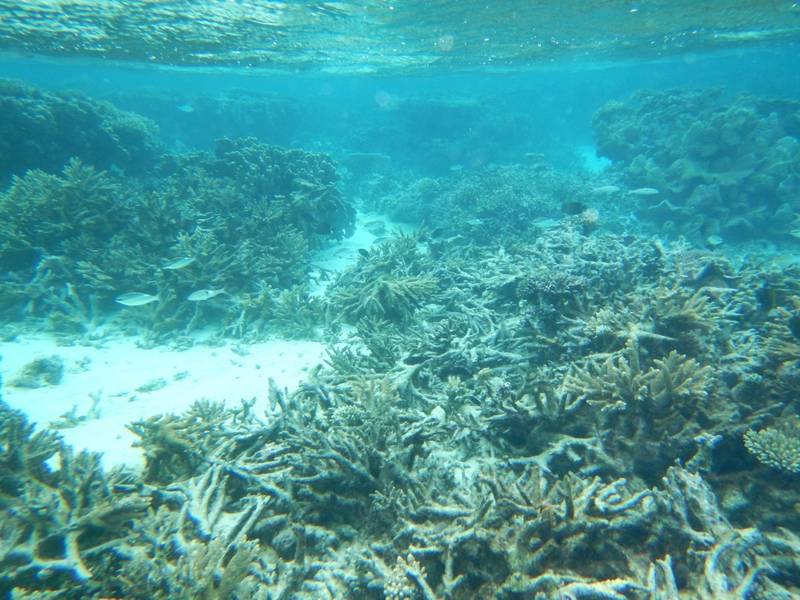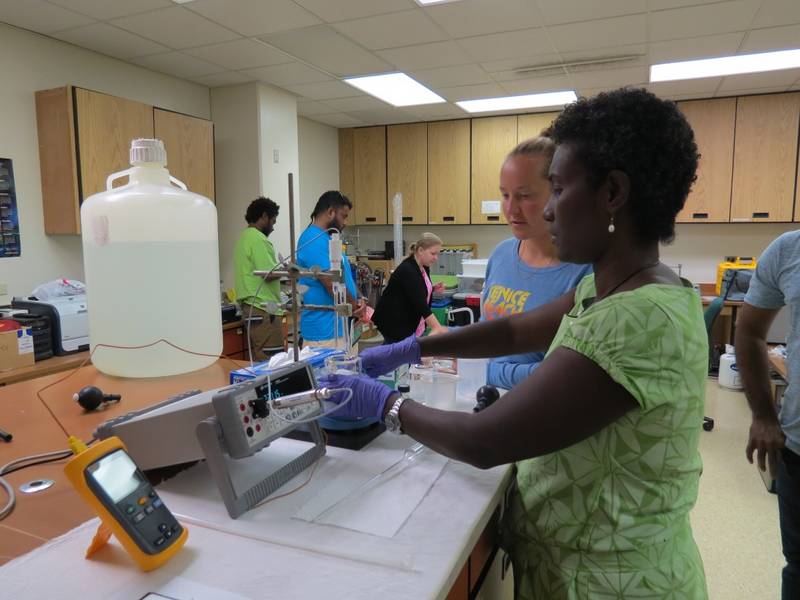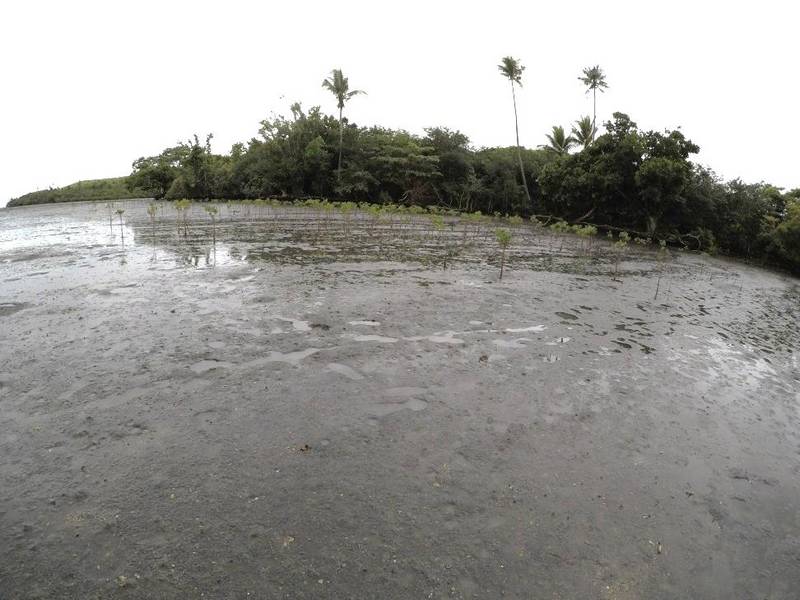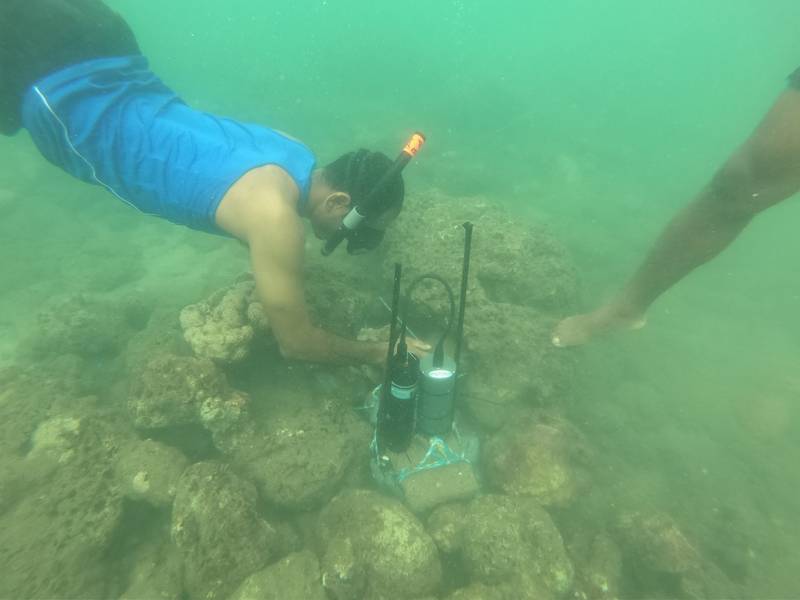IAS Leads Local Mitigation of Ocean Acidification Project in Fiji
14 December 2018
The Institute of Applied Sciences of the University of the South Pacific, has in October, 2018 been awarded a blue carbon habitat restoration contract to pilot the use of Blue Carbon in local mitigation of ocean acidification (OA) in Fiji. The contract, valued at USD89,999, is funded by The Ocean Foundation as part of their blue carbon restoration initiative in the Pacific Islands.

An impact of ocean acidification on coral reefs may be the decrease in the resilience of coral reef structures as a result of lower calcification rates as seen here in Kadavu waters July 2016 
PNPRC Manager Dr Katy Soapi led by trainers at the University of Hawaii in August 2018 
Mangrove restoration site in Ra 
IAS Staff Ilaisa Kacivakanadina adjusts the Ocean Acidification (OA) instrument that was deployed in Ra in October 2018
Blue carbon refers to the ability of coastal marine ecosystems, such as mangrove forests, sea grass meadows, and saltwater marshlands, to capture carbon dioxide and store quantities of blue carbon in both the plants and the sediment below. This leads to less dissolved carbon dioxide available in the water column to form acidic compounds. The restoration of blue carbon in coastal ecosystems can help mitigate the effects of OA on coastal communities.
The award followed a two-part science capacity building workshop held in October and November 2017. Part one of the workshop focused on the fundamentals of ocean acidification, its impacts, how to measure and then monitor it, and the creation of a regional network of scientists focused on ocean acidification. Part two focused on conducting lab and field monitoring and research with equipment provided in the “GOA-ON in a Box” kit. After the workshop, USP received a kit for use in Fiji for OA monitoring. The kit was designed by top international experts on ocean acidification. Further training of Oceania scientists for OA monitoring and data analysis was held at the University of Hawaii in August 2018.
The Blue Carbon restoration project will use the “GOA-ON in a Box” OA monitoring kit donated by The Ocean Foundation to monitor ocean acidification through measurement of pH both in the lab and in the field.
The project aims to monitor OA and assess the local mitigation of OA through mangrove restoration. The proposed project sites are located in the Ra province on the main island of Viti Levu in Fiji and involve restoration work, ocean acidification monitoring, verified carbon standard measurement for soil carbon pool and laboratory analyses.
The project will continue the restoration work in Ra Province done under the Restoration of Ecosystem Services and Adaptation to Climate Change (RESCCUE) project that is ending in November 2018. It seeks to plant 1.0 ha of mangroves over two years that will store a projected 116 tons of carbon over 20 years. The project will combine restoration work, carbonate chemistry monitoring and verified carbon standard measurement for coastal mangrove reforestation and afforestation.
Led by Dr Katy Soapi, the IAS Manager for the Pacific Natural Products Research Centre (PNPRC) and supported by the IAS Environment Unit Scientific Officers, the project aims to understand the dynamics of ocean acidification parameters before, during and after restoration of mangrove habitat. The project also aims to increase capacity of communities in carbon emission reduction and climate adaptation and biodiversity conservation.